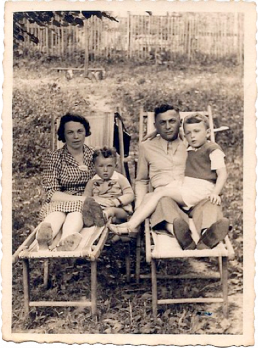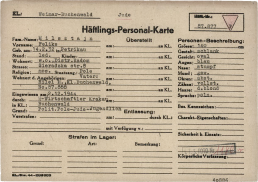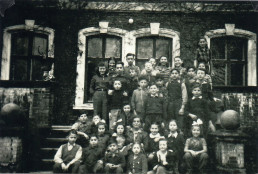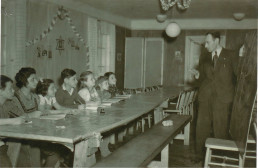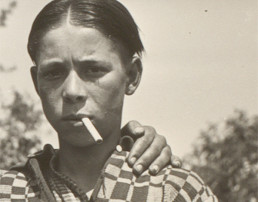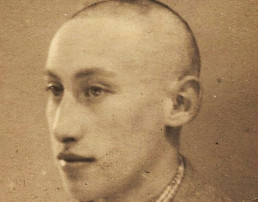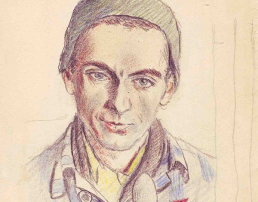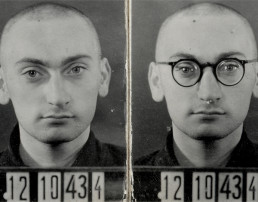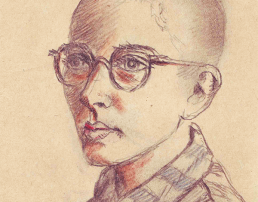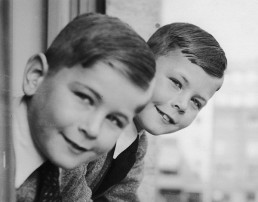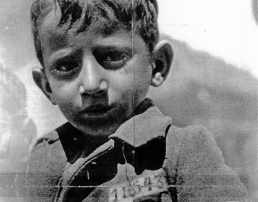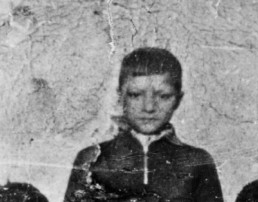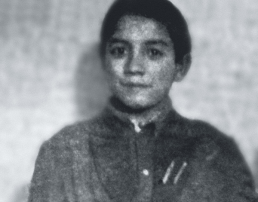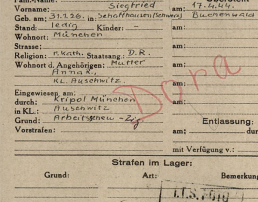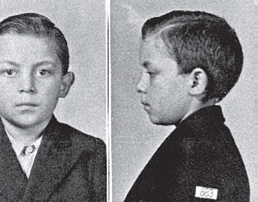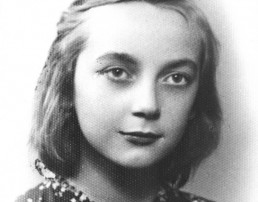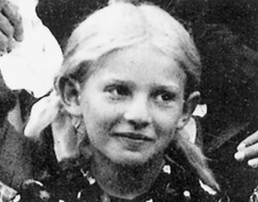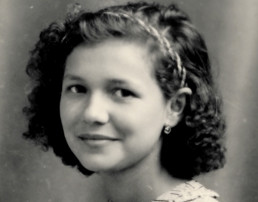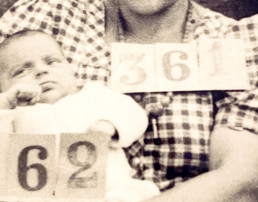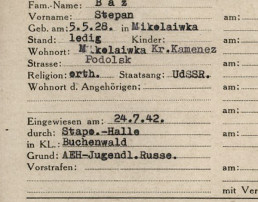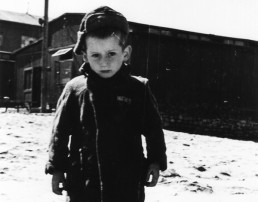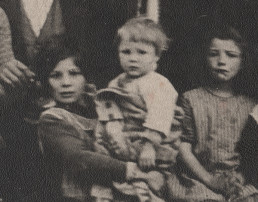Shraga Milstein (Feliks Milsztajn)
From Poland to Buchenwald and Bergen-Belsen
Feliks Milsztajn was born in 1933 in the Polish town of Piotrków Trybunalski. In October 1939, the German occupiers forced the Jewish family to move into a ghetto. His mother was deported to the Ravensbrück Concentration Camp in 1944; the SS sent him, his brother, and his father to the Buchenwald Concentration Camp in late 1944, where his father died.
In January 1945, the SS transferred Feliks Milsztajn and other children to the Bergen-Belsen Concentration Camp. The camp was liberated on 15 April 1945. Later, he learned that his mother had also been deported to Bergen-Belsen. She died shortly after the liberation, without the two of them having seen each other again.
In May 1945, the 12-year-old was able to have his 9-year-old brother, who had been left behind in Buchenwald, brought to Bergen-Belsen. A short time later, the two were sent to a children’s home in Sweden before leaving for Israel in 1948. There, Feliks changed his name to Shraga Milstein and became a teacher and the director of the Massuah Institute for Holocaust Studies. Since 2019, he has been the chair of the advisory board of the Lower Saxony Memorials Foundation.
Buchenwald Concentration Camp prisoner registration file for Feliks Milsztajn (today Shraga Milstein), 2 December 1944.
One month later, the SS transferred Feliks to Bergen-Belsen. On the form, his date of birth is given as 1932 rather than 1933. His father had told the SS that his son was a year older in order to protect him.
(Arolsen Archives)
“In Nov. 1944, we were shipped in a cattle wagon to Germany – my father, brother, and myself to Buchenwald, my mother to Ravensbrück. When we parted at the train station was the last time, I saw her. A few days after our arrival in Buchenwald, my father came back to our barracks in the evening with a stern look in his eyes. He took my brother and me aside and said: "we have to part and we will not see each other anymore. Take care of your younger brother, remember your names and the fact that you have family in Palestine." He gave us a hug and we went to sleep. I later learned that the next day he was killed at the age of 43. All my efforts, during the years, to find out what happened and how he knew his fate, were in vain. A few weeks later, I was transferred with a group of friends my age to Bergen-Belsen Concentration Camp.”
From Shraga Milstein's Holocaust Remembrance Day speech at United Nations Headquarters in New York, 27 January 2020.
(United Nations)
